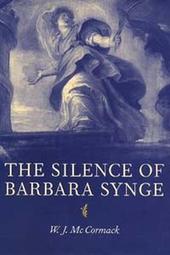
|
The Silence of Barbara Synge
Paperback / softback
Main Details
Description
The family of playwright J.M. Synge (1871-1909) had a long pedigree in Ireland. Taking the alleged death in 1767 of Mrs John Hatch (nee Synge) as his focal point, Bill McCormack explores the varied strands and stresses of two family histories in the 18th and early 19th centuries. A suicide in 1769, echoed in an early play by Synge, is carefully documented. Among the Hatch family, sometime MP John Hatch (d.1797) emerges as an unlikely ancestor for the playwright, while the behaviour of Francis Synge at the time of the Union come under revealing scrutiny. The religious and educational concerns of John "Pestalozzi" Synge (1788-1845) worked as expiation of earlier offences and anxieties, but the Wicklow properties which the Synges inherited from John Hatch could not survive the Famine without grievous loss. Paradoxically, Synge's attachment to local values is traced from that disaster right into composition of "The Playboy of the Western World" (1907).
Author Biography
W. J. McCormack is Professor of Literary History, Goldsmiths College University of London -- .
Reviews'I believe this is a model for a new kind of literary-historical project... It is not biography, literary history or criticism, but it is this awkwardness that is also the work's major strength. McCormack is probably the leading authority on Irish protestant culture in the C18th and C19th.' - Richard Kirkland
|